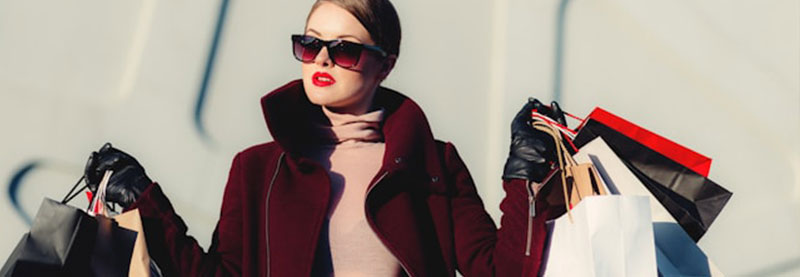Intellectual Property Insights from Fishman Stewart
Mini Article – Volume 24, Issue 21
Share on Social

Will you add MetaBirkin to your holiday wish list?
By Kristyn Webb
Happy “Black Friday”—the biggest retail shopping day of the year. Soon, you may be able to add MetaBirkin to your holiday wish list.
In 2021, artist Mason Rothschild created a series of non-fungible tokens (NFTs) that depict fuzzy handbags called “MetaBirkins” which he offered for sale on the NFT marketplace OpenSea. In 2022, the French luxury brand Hermès, known for its “Birkin” handbags, filed a lawsuit for trademark infringement and other claims against Rothschild. For comparison, Birkin bags range in price anywhere from around $20,000 USD to $2 million USD. One of Rothschild’s MetaBirkin NFTs sold for $42,000 USD.
After receiving a letter from Hermès, OpenSea removed the NFTs from the marketplace, but Rothschild relisted the NFTs on another marketplace called Rarible. Soon after, however, that listing also was removed. Rothschild publicly responded to the lawsuit on Instagram and stated that his work is protected by the First Amendment as free speech. He further stated that Hermès should be using its role as a “fashion powerhouse” to help young and aspiring artists. Rothschild also shamed OpenSea for failing to “standby the artists who support” the platform.
The case went to trial, where the jury found in favor of Hermès and awarded $133,000 USD in damages. Now on appeal, Rothschild argues that he is an artist and his MetaBirkins are not merely commercial goods, but art worthy of First Amendment protection—in the same way that Andy Warhol made art of Campell’s Soup Cans. During oral arguments, the appellate panel appeared somewhat divided on the issue. One judge flat out stated that he believed the MetaBirkins were an artistic expression, while other comments and questions by the panel queried whether Rothschild was simply trying to cash in on the Birkin brand and the NFT goldrush, and whether NFTs can really be “art” if they cannot be mounted on a wall. One judge commented, “For the life of me, I cannot understand why [people] are buying them, but apparently they are.”
We will have to wait and see whether the appellate court finds grounds to overturn the jury verdict. In the meantime, if Birkin bags and MetaBirkins are out of your price range, check out our Finny NFTs—which are much more reasonably priced. Any proceeds support The Ocean Conservancy.
Kristyn Webb is the Group Leader of Fishman Stewart’s Copyright Practice Group, and holds a Master’s Degree in Copyright Law from King’s College London.


Related Content from Fishman Stewart
People have long pondered whether or not the Giza pyramids were indeed solely burial chambers, which was the only known, and archaeologically determined, use—until now.
By 1930, efforts began in New York to replace Mother's Day with Parent's Day because men were more than just breadwinners. Those efforts didn't catch on, probably because in that era, women often spent more time in the home.
In February, Nike and Skims announced that they will be working together on a new brand, NikeSkims. The co-brand will create a new line of training apparel, footwear, and accessories specifically designed to meet the unique needs of women athletes.
Generally, federal courts have exclusive jurisdiction over copyright cases, and often, this presents an insurmountable paywall for individual artists and small businesses to vindicate their rights, especially where the value of the individual copyrighted works are relatively low.
Dedicated to raising public awareness about the importance of encouraging innovation and creativity throughout the world, the World Intellectual Property Organization (WIPO) annually observes World Intellectual Property Day on April 26 to showcase the role that patents, trademarks, industrial designs, copyrights and trade secrets play in our everyday lives.
Hold onto your foam fingers, sports fans – college sports just got a whole lot more interesting! The latest updates to Name, Image, and Likeness (NIL) rules are making student-athletes bigger than ever, and it’s not just about the game anymore.
Did a federal court in Louisiana recently decide that US copyrights are global rights? It seems so.
One of his most famous songs, “Lose Yourself” was recently at the center of a lawsuit. In 2019, Eminem’s publishing company Eight Mile Style sued Spotify claiming that Spotify streamed a number of its musical compositions without proper licenses.
One of the most common challenges is whether AI should be free to train on data that is protected by copyright and owned by third parties without first obtaining permission.
The U.S. Copyright Office (USCO) recently published its latest report on AI and “copyrightability.” In short, the USCO considers only some AI-generated works to be sufficiently creative as to deserve copyright protection, and thus, registration.
IDENTIFYING, SECURING AND ADVANCING CREATIVITY®













